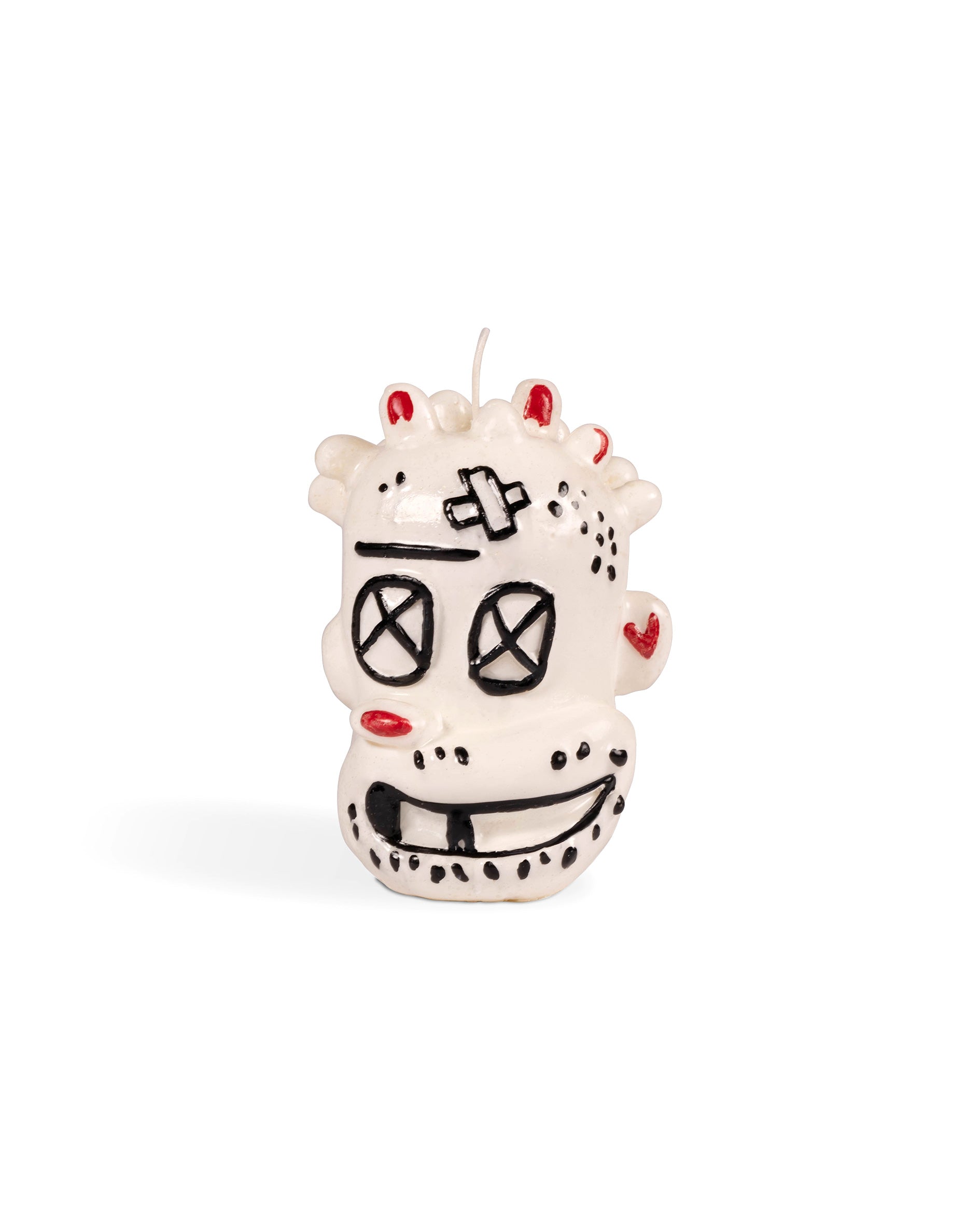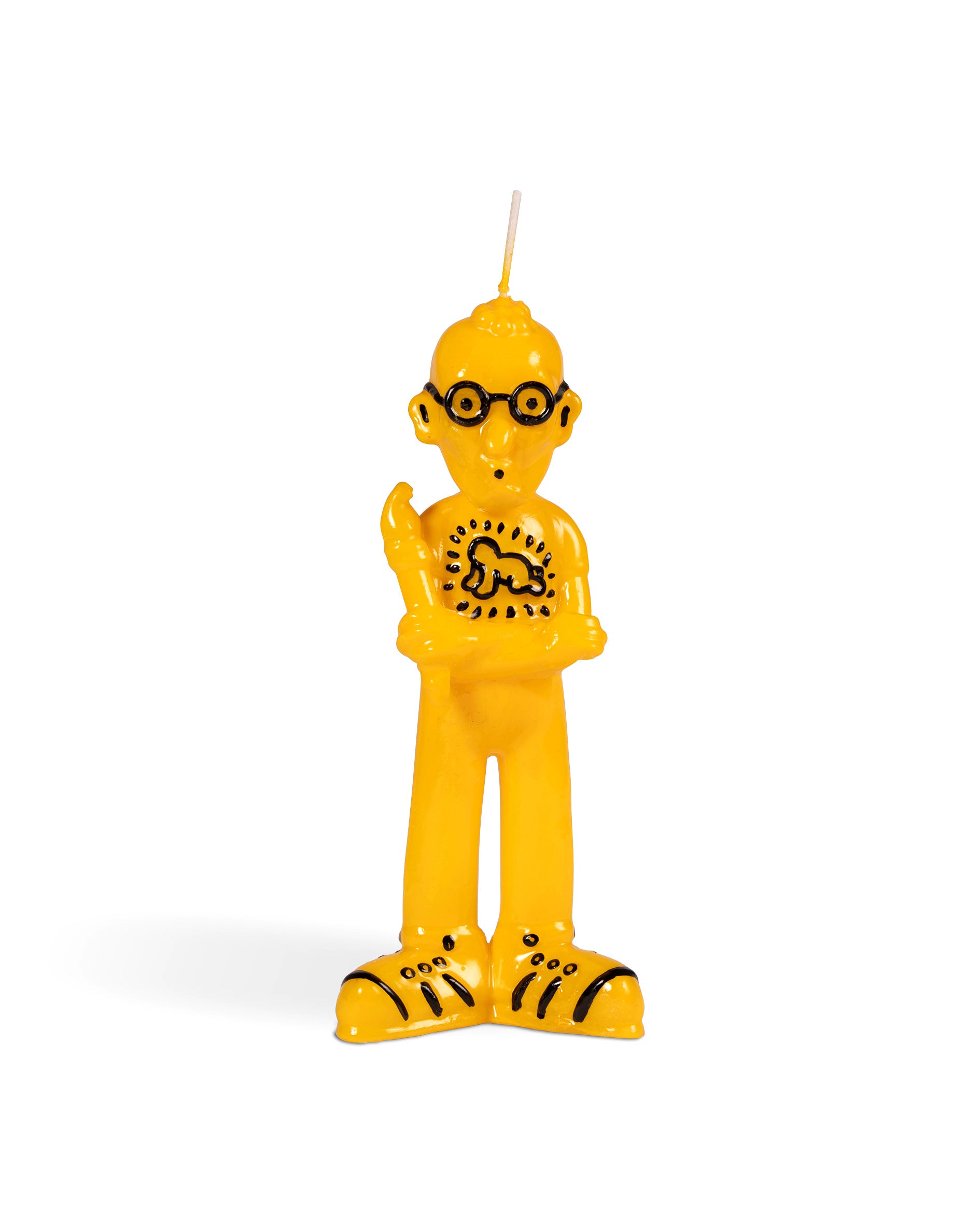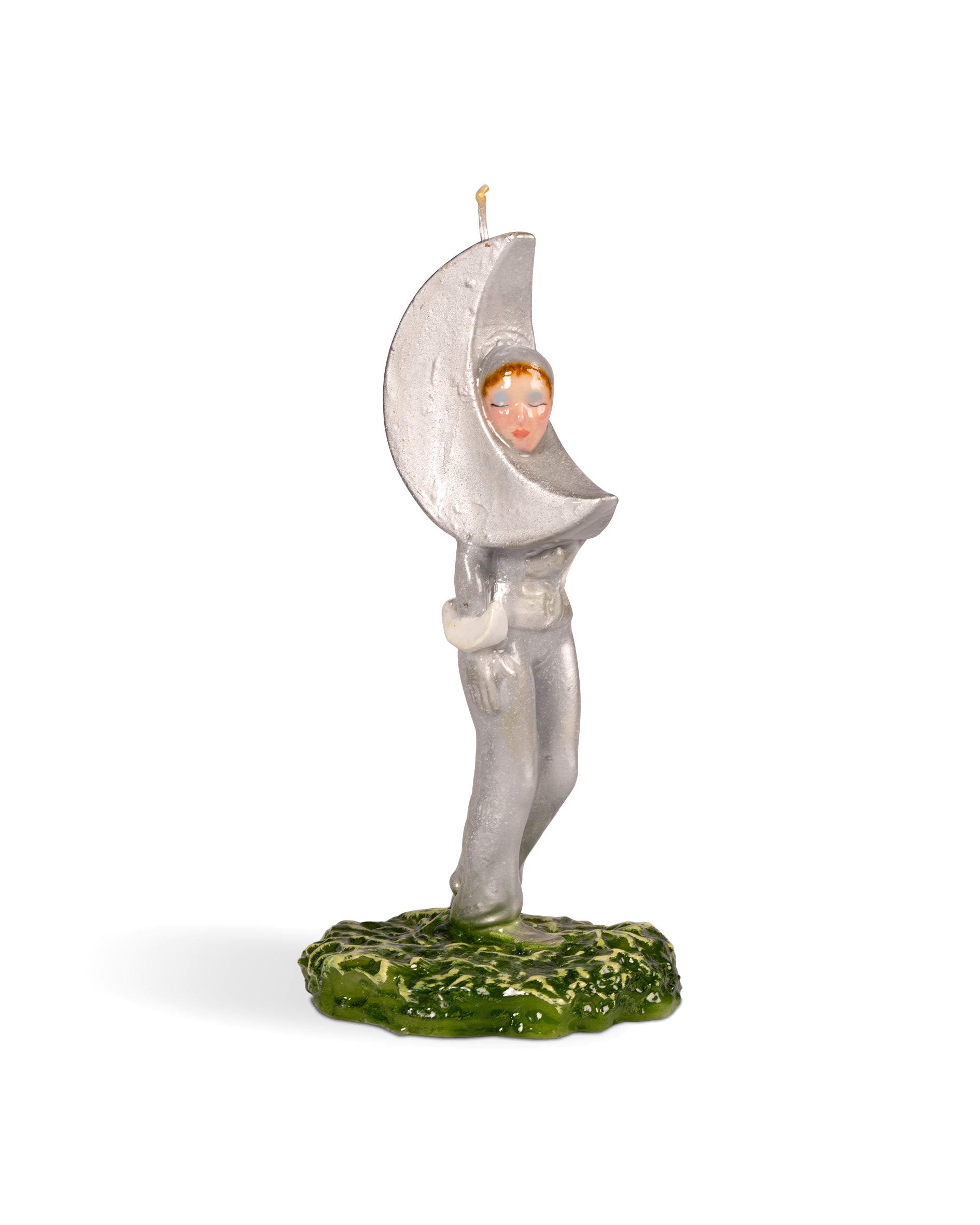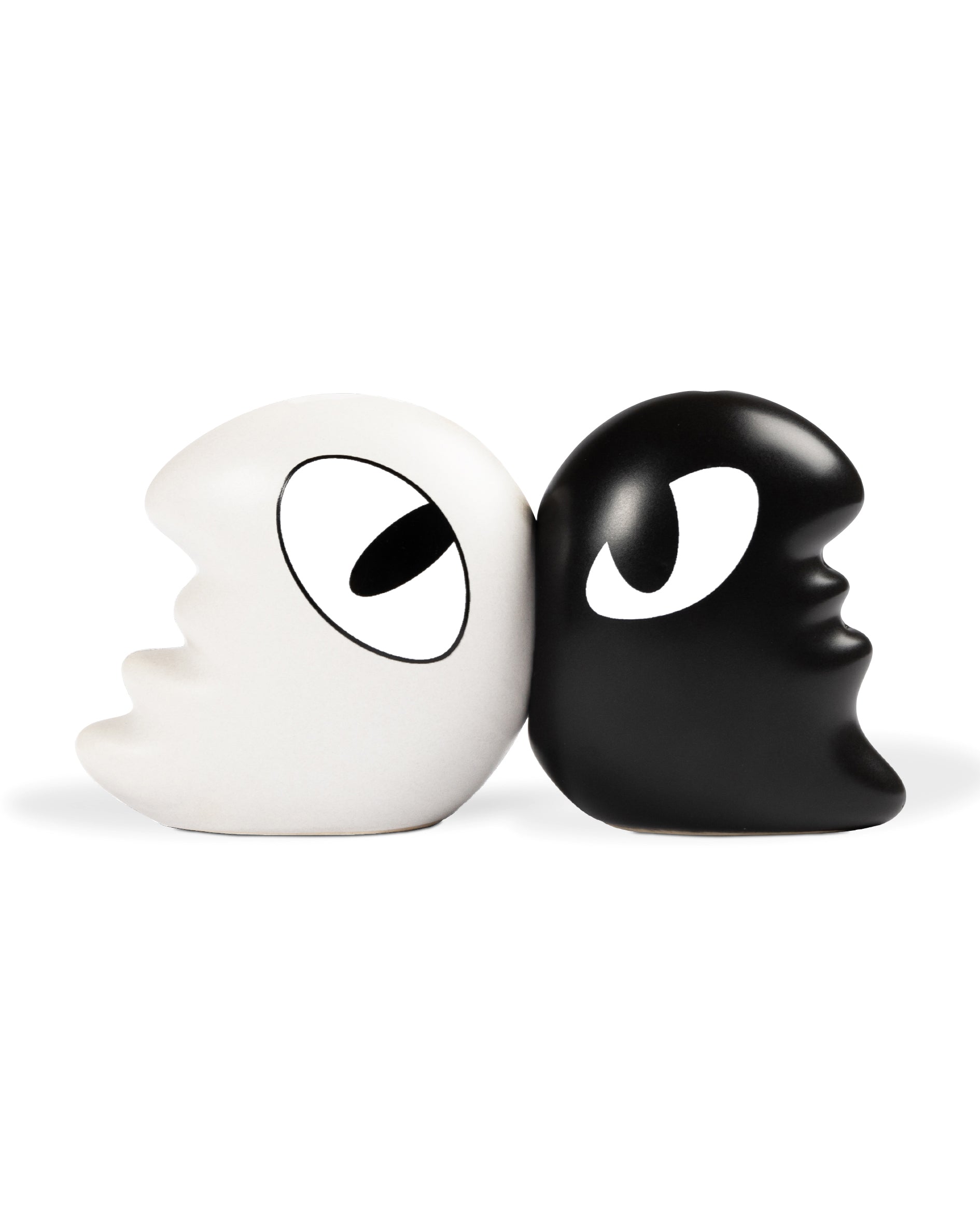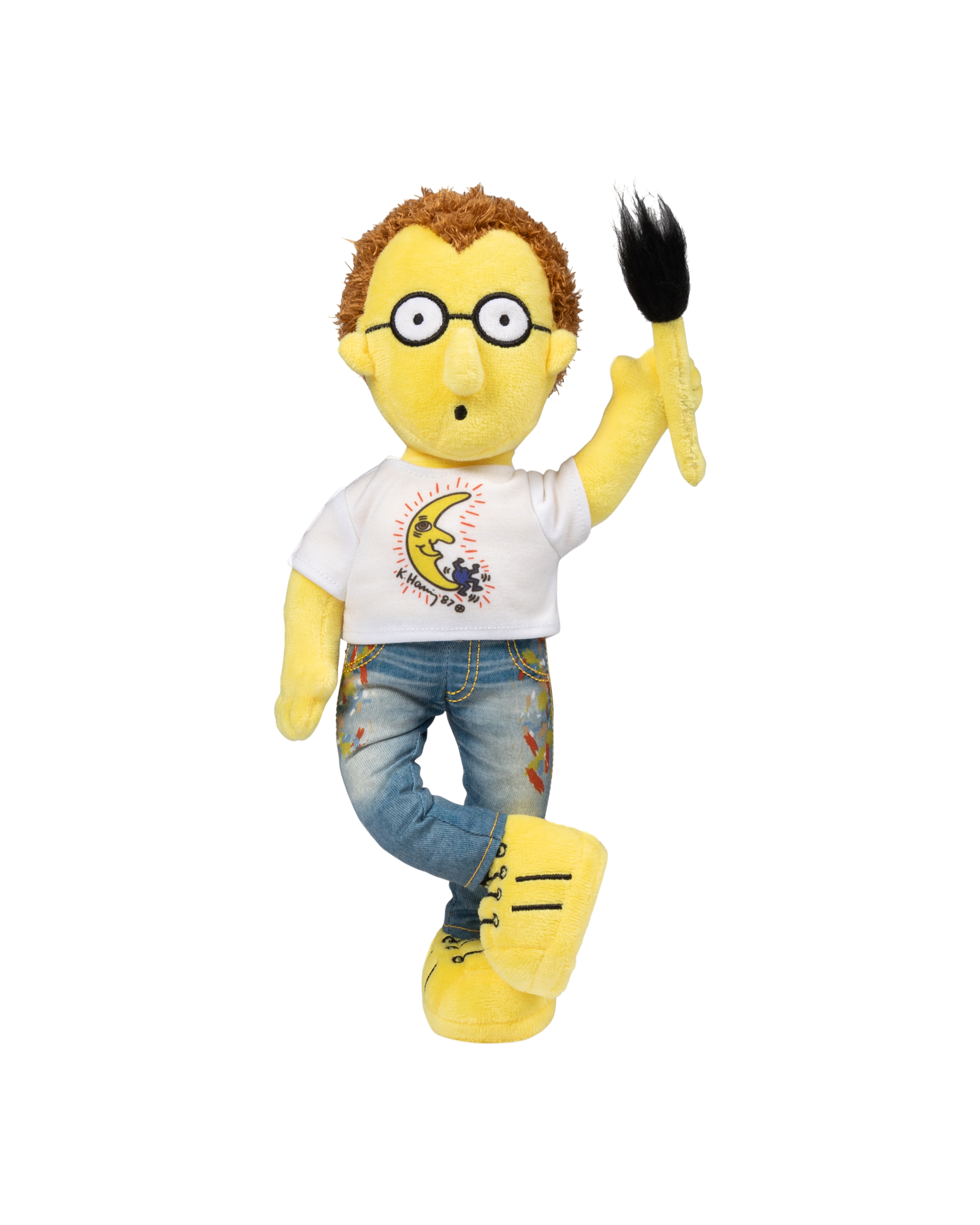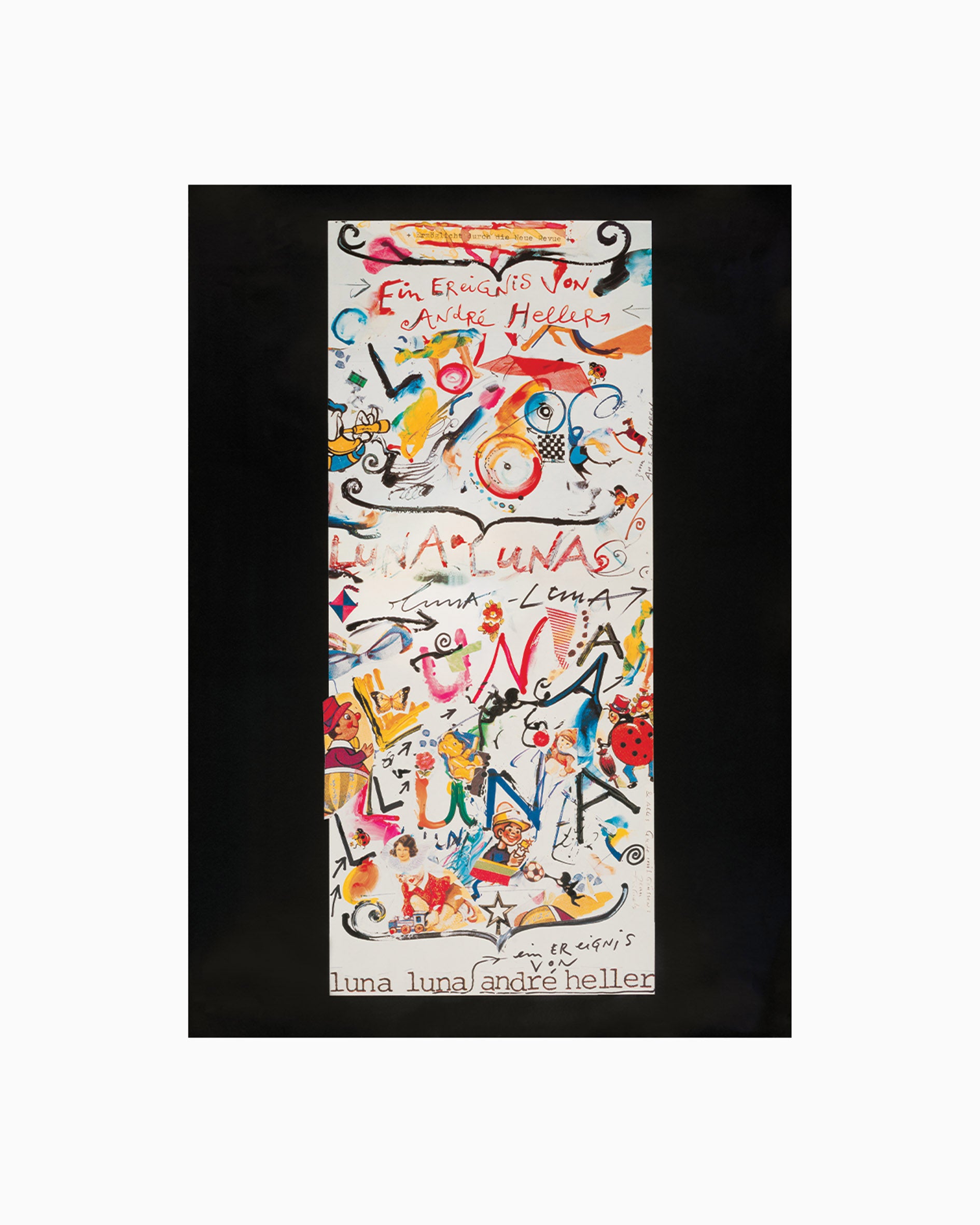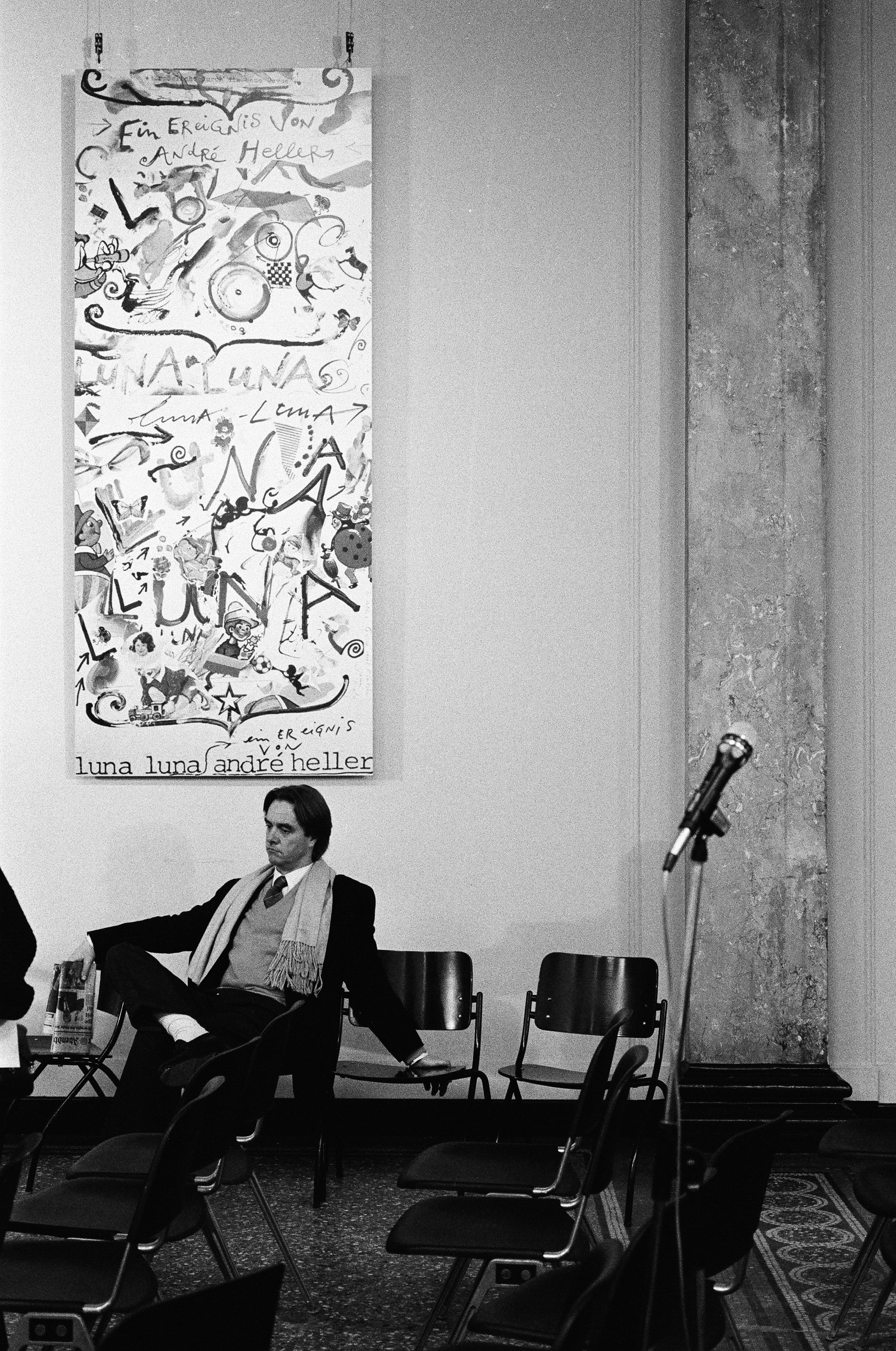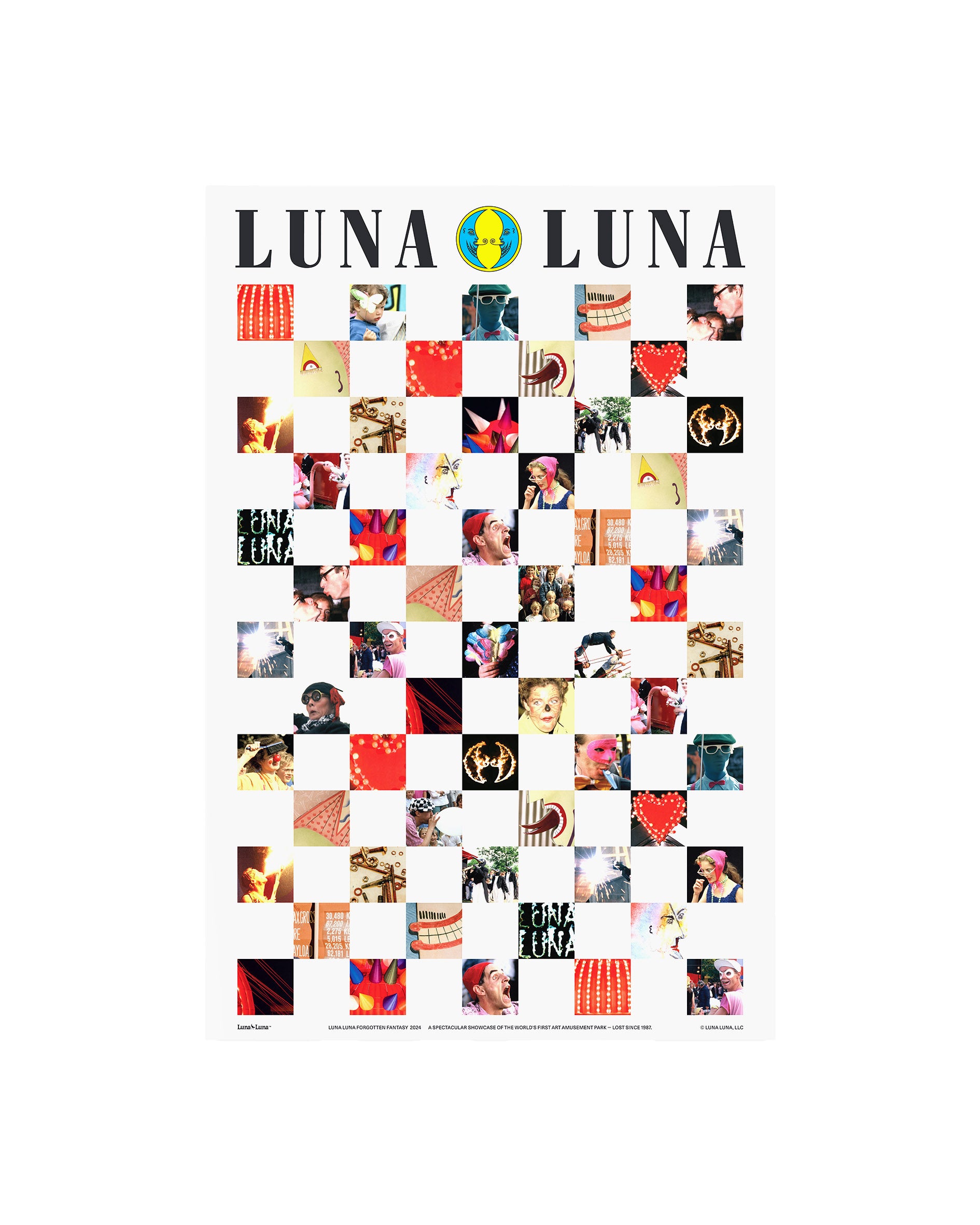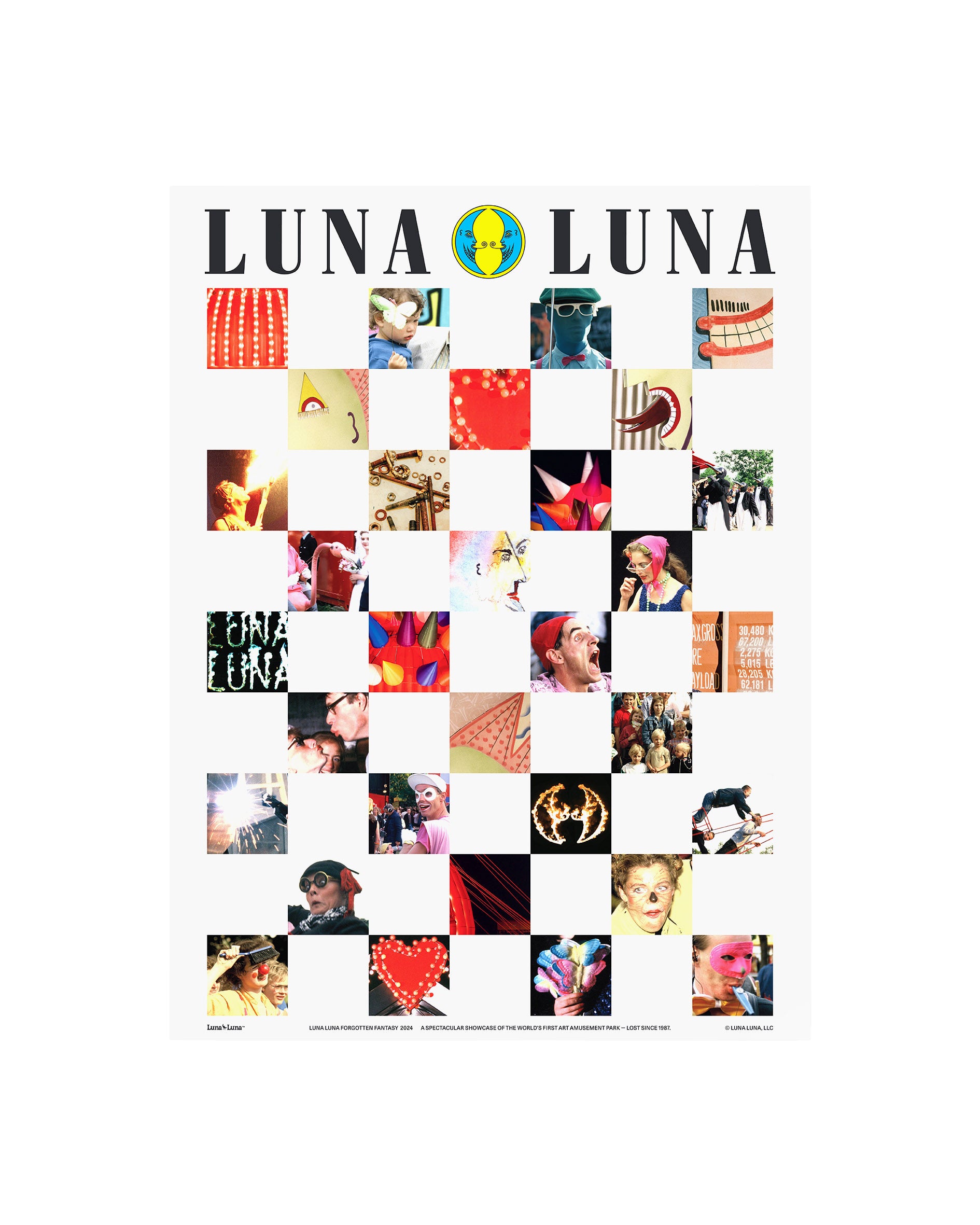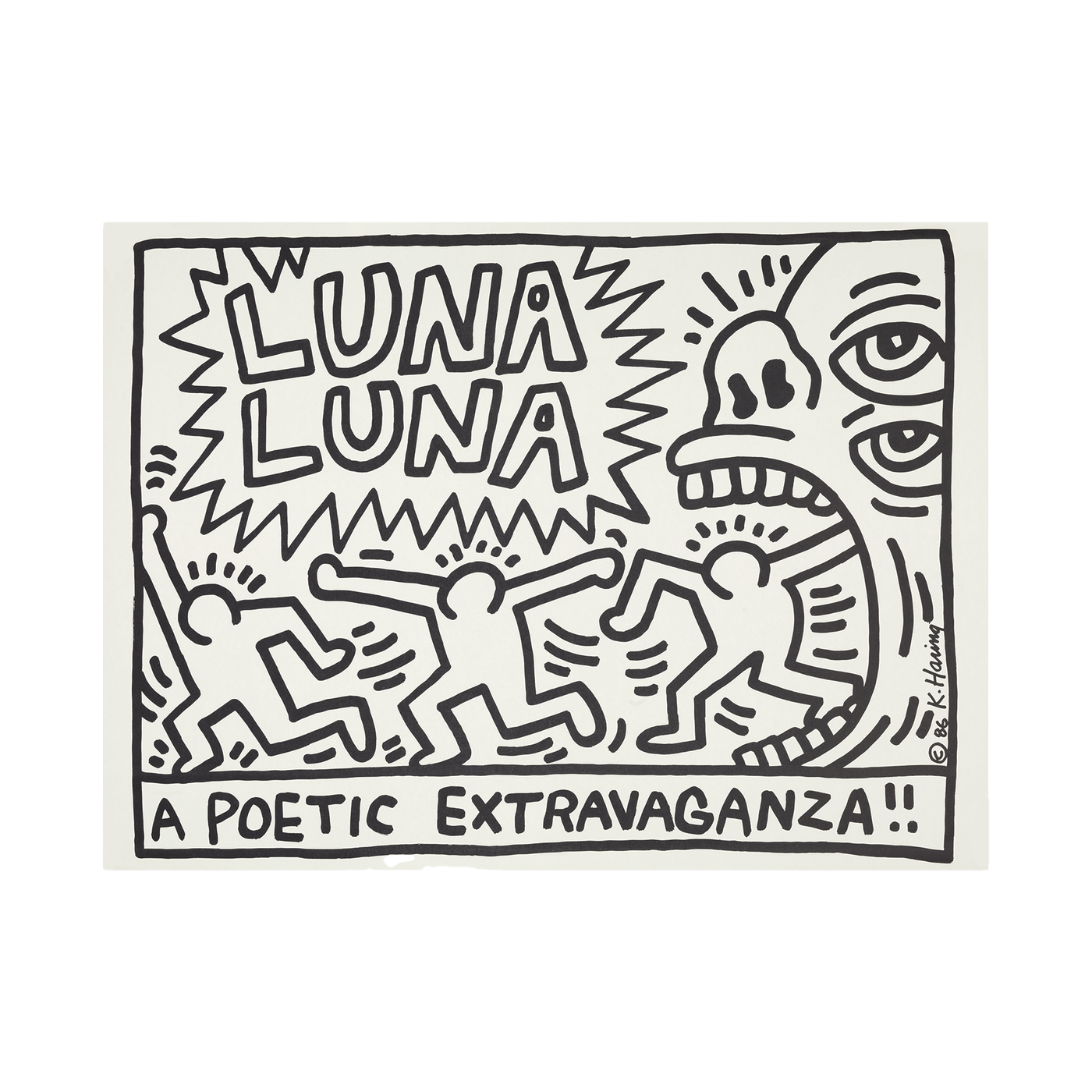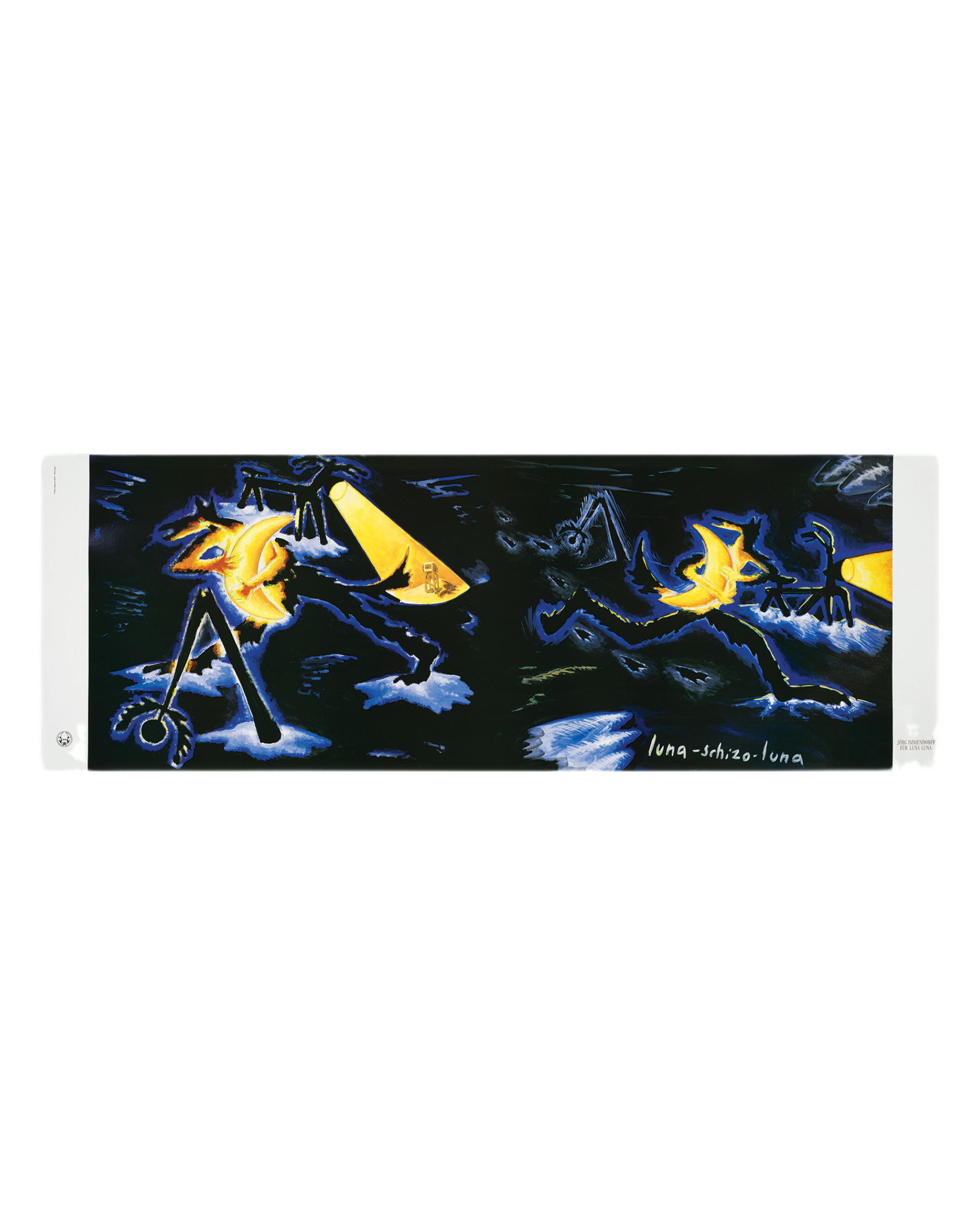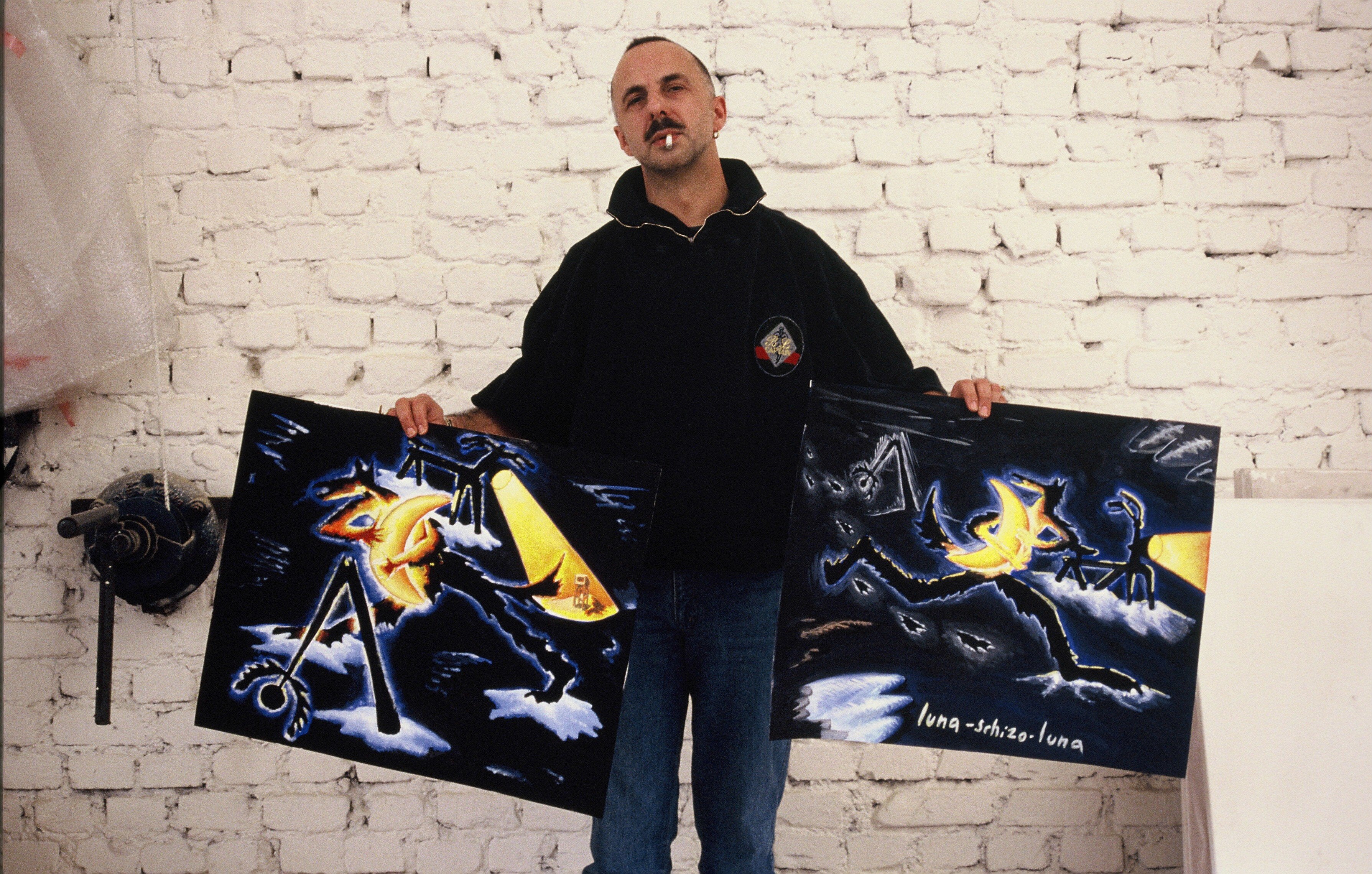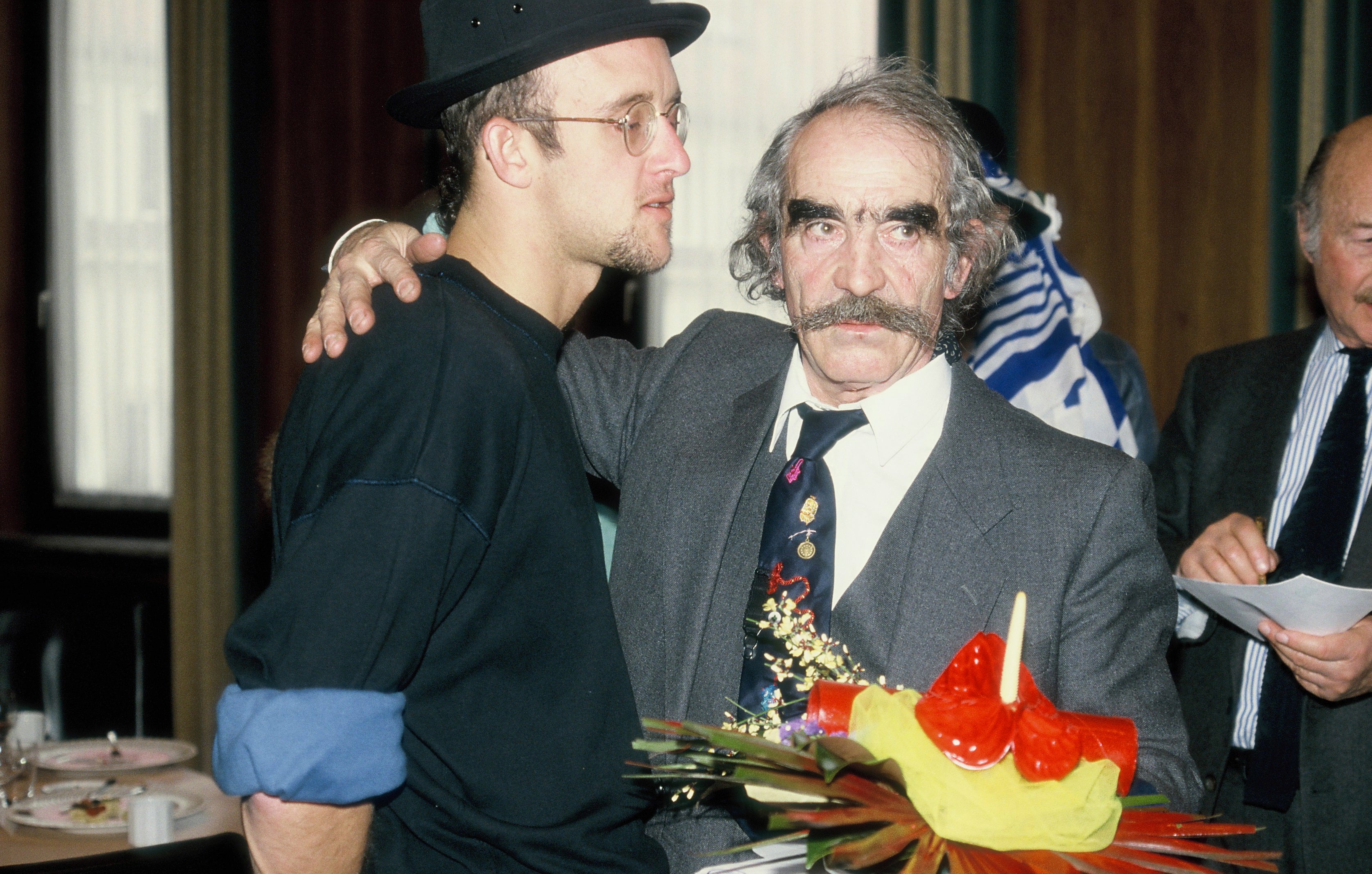
Jean Tinguely and Keith Haring.
Swiss artist Jean Tinguely is famous for his playful, motorized, dancing sculptures. From the early 1950s until his death in 1991, Tinguely created what he called Méta-Matics (“Metamechanics”)—sculptures of everyday objects and mechanical structures combined with motors to propel them into motion.
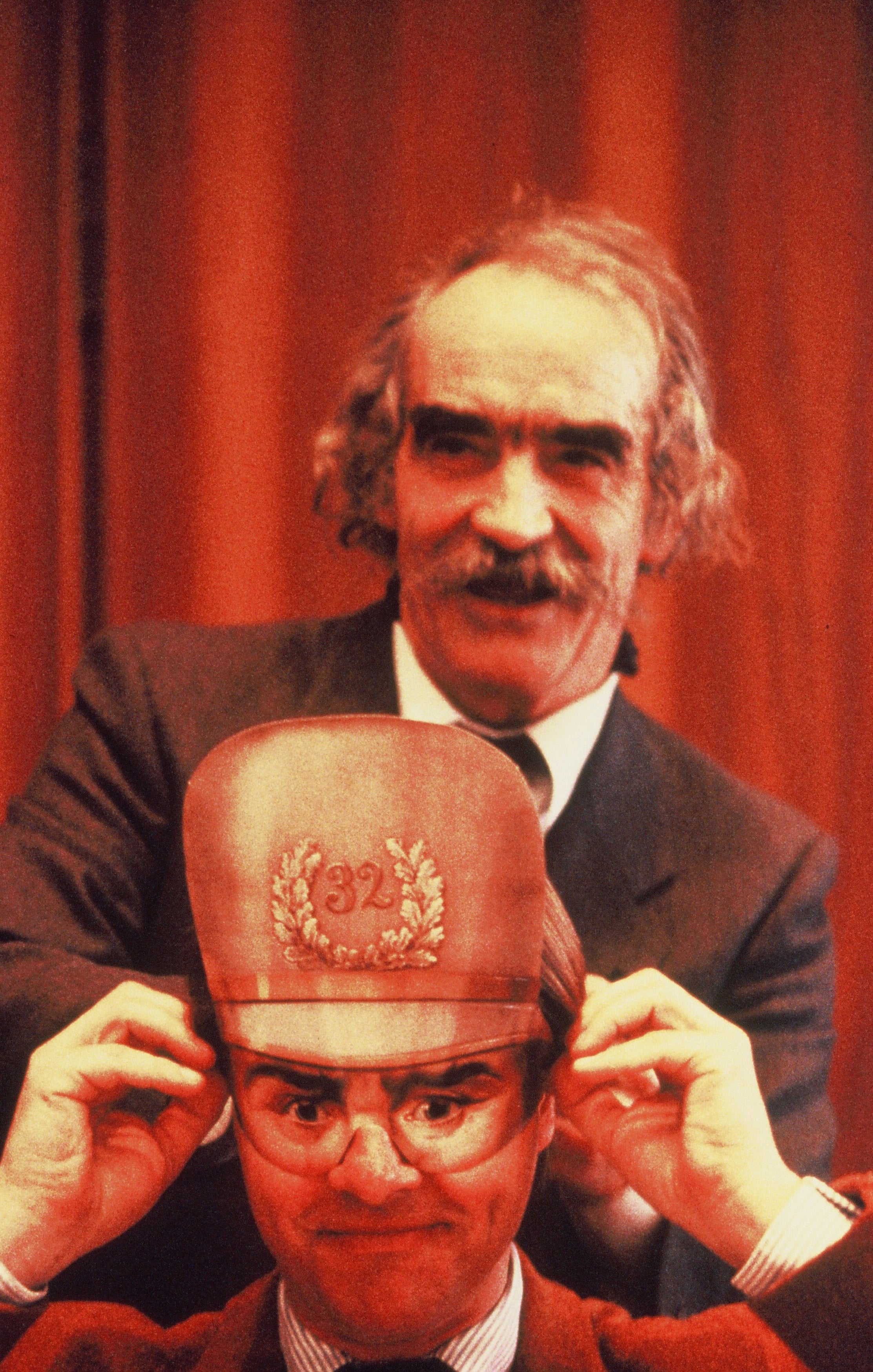
Jean Tinguely.
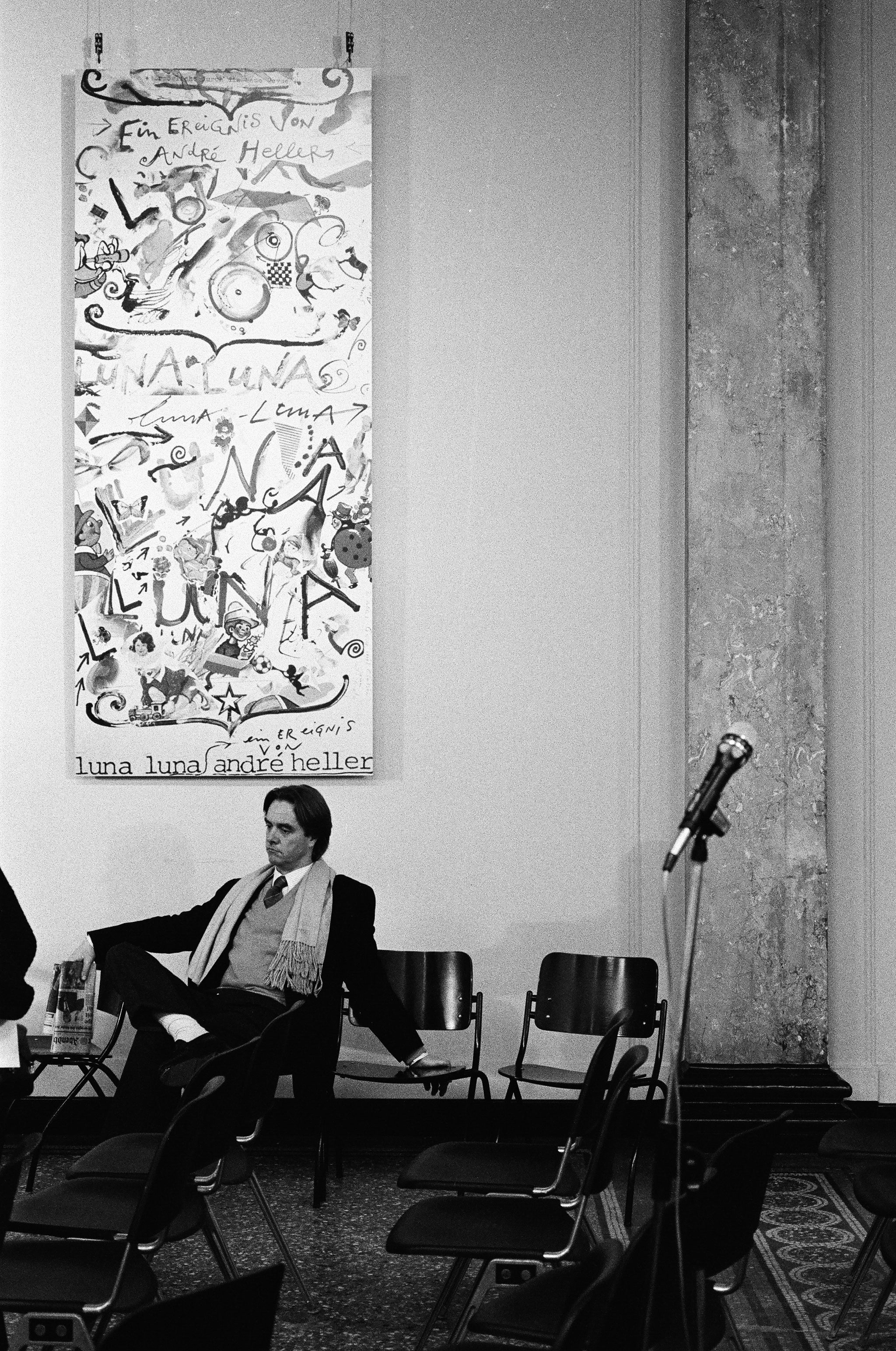
Jean Tinguely, Luna Luna poster, exhibited 1987.
In 1960, Tinguely signed the Nouveau Réalisme (“New Realism”) manifesto, a movement founded in 1960 by the critic Pierre Restany in which reality was a medium in itself—artists took everyday objects and discarded refuse and combined them to make sculpture, installation, and performance, in an antidote to burgeoning consumerism. Tinguely’s fascination with robotics and his desire to create self-propelled motion led to his invention of drawing machines often made out of recycled bicycle parts that produce abstract art in pen, and sculptures made from clunky clusters of metal that jolt and crash haphazardly when viewers press a button. In 1953, Tinguely and Luna Luna artist Daniel Spoerri collaborated to create the performance Autothéâtre (“Automatic Theater”), for which a mechanical set moved colored objects around the stage without human performers.
Tinguely created what he called Méta-Matics (“Metamechanics”)—sculptures of everyday objects and mechanical structures combined with motors to propel them into motion.
For Luna Luna, Tinguely designed a poster that collaged the words “Luna Luna” in different lettering styles with appropriated images of cartoon characters and wheels, motors, swirls, and pendulum swings, reminiscent of circus acrobats and trapeze artists.
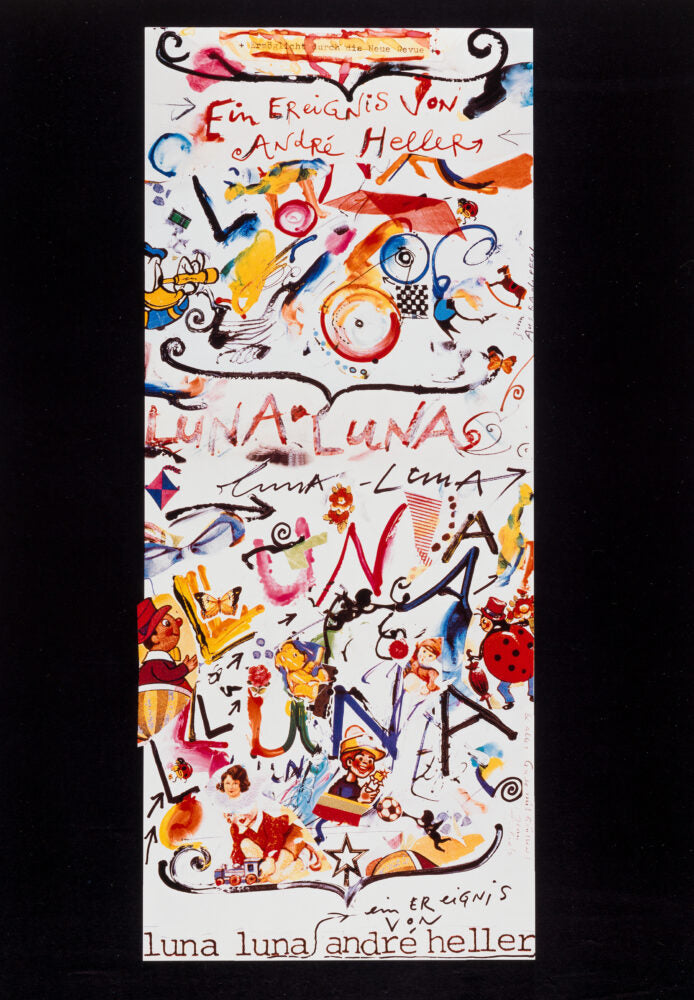
Jean Tinguely, Luna Luna poster, exhibited 1987.
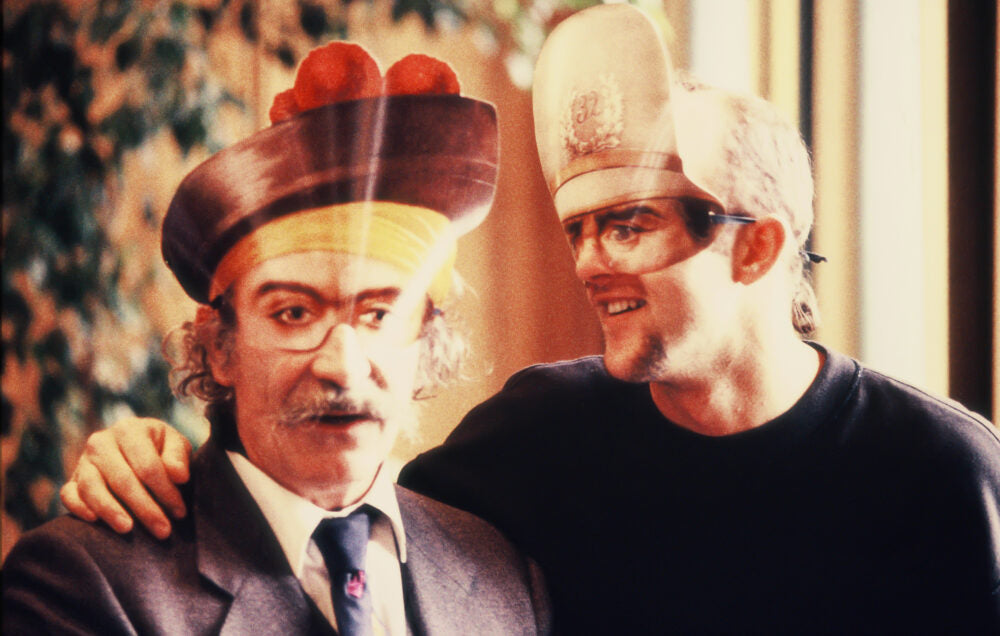
Jean Tinguely and Keith Haring.

